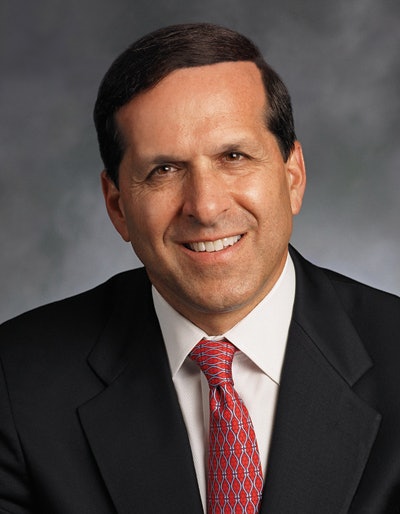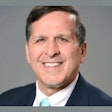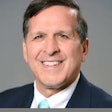
Gen. Douglas MacArthur, one of the most distinguished U.S. military leaders, was not a dentist and never led a dental practice. But when consultants who coach dental professionals on how to make practices thrive think about leadership, many think of a quote attributed to MacArthur.
"A true leader has the confidence to stand alone, the courage to make tough decisions, and the compassion to listen to the needs of others," MacArthur reportedly said. "He does not set out to be a leader, but becomes one by the equality of his actions and the integrity of his intent."
 Dr. Roger P. Levin.
Dr. Roger P. Levin.Dr. Roger P. Levin, founder and CEO of the Levin Group dental practice management consultancy, is among those who point to the MacArthur quote as an example of leadership.
"If you want your team to behave in a certain way, then you need to exemplify those characteristics," Levin told DrBicuspid.com. "We ask our clients, usually dentists or office managers, to make a list of the four to six leadership characteristics or traits that they want on their team. Then, you begin living those characteristics, and as other people see you displaying them, they will gradually start to copy."
But what traits should a good leader exemplify? And how can leaders put these traits into practice? Levin and two other practice success experts shared six tips for how to step up your leadership game.
1. Practice optimism and transparency
Optimism and transparency are two key assets of a good leader, according to Levin.
He defines optimism as hope for a better future. When optimism is present, team members and employees want to work in that environment.
"They want to make a difference, and they want to contribute," Levin said. "And when the doctor or office manager brings optimism every day, not just pay lip service to it, people gravitate to those environments."
But optimism only goes so far without transparency. That's why being transparent in communication is also a practice of an effective leader, Levin noted.
Dental team members want to know what is going on in the practice. If someone finds out about an event after the fact or "through the rumor mill," that person will stop trusting the doctor and practice, he explained.
"If there are changes coming, then they should be shared with the team," Levin noted. "That's how you build consensus and that's how you get the team on board."
2. Learn how to coach
Lynne Leggett, the founder and CEO of Victory Dental Management and author of You Can't Coach Quit: How to Create a Winning Dental Practice for Your Success, sees the coaching model of leadership as applicable to a dental practice.
 Lynne Leggett.
Lynne Leggett."You can have a team, but you may not know how to coach," said Leggett, an avid basketball fan who also been a basketball coach. "If you aren't coaching, then things may be falling through the cracks and affecting your business."
Just like with a sports team, if everyone is playing their position and supporting other members of the team, then the dental practice will jell, according to Leggett. The cohesiveness this creates will help to overcome practice shortcomings.
"Everybody will start to have the cohesiveness of a true team versus a group of employees working together," she said. "The cohesiveness will build over time."
3. Hold a daily huddle
On any given day, the dental team needs to have a daily huddle to make sure everyone in the practice is aware of the tasks for that day, Leggett added.
"It can be as quick as 10 minutes," she said. "You want to make sure that everyone is on the same page, that everyone knows what is going to happen with every patient on that day. That way, everyone looks professional."
Having a short daily huddle also helps to build command and confidence because team members will know what they're doing. That confidence then gets projected to patients.
"The understanding of what is going to happen, the patient interaction, and the patients feeling that confidence from the team is what separates a five-star review from a one-star review," Leggett said.
4. Plan ahead
A practice with good leadership is one where the treatment coordinator informs patients of their treatment plan and its associated cost, in addition to outlining the diagnosis and why a particular procedure needs to be performed, Leggett said.
"The patient should always be informed so he or she is knowledgeable about what is going on with their oral health," she said. Strong and clear communication with patients about the content of their treatment plan and the associated financial cost will avoid patients being surprised by the treatment charges.
Another good habit is to have a plan or system in place to respond to dental emergencies so they can fit into the daily schedule.
"The scheduler has to plan for a dental emergency," Leggett explained. "We know in the dental world that there will always be emergencies. The question is where to fit the emergency in the schedule."
In fact, planning for an emergency and determining where an emergency will fit into that day's schedule is something that can be discussed in a morning huddle, Leggett added.
5. Focus on shared values
 Rosa Pasquantonio.
Rosa Pasquantonio.Rosa Pasquantonio, an office manager at TGO Orthodontics in Montreal and fellow of the American Association of Dental Office Management, said that successful leadership is about aligning values among the team.
"It makes such a difference when values are aligned in a dental practice," Pasquantonio said. "If the dentist repeatedly arrives late and the rest of the team is being told to be on time, values are not aligned."
6. Keep an open door
An effective way to bridge the front and back of the office -- or the clinical side and the administrative side -- is for the office manager to keep an open office door. Because the office manager's office is located between the two worlds, it symbolizes his or her accessibility to the whole team.
"I believe in an open-door policy, no matter how busy I am," Pasquantonio stressed, noting that the open door suggests to team members that they can approach her with whatever challenges arise.
Pasquantonio also praised the merits of listening to team members and including them in the practice decision-making process. In a successful dental practice, democracy trumps autocracy as a form of leadership, she noted.
"You want to let team members know that they have a voice and that they are being considered and heard," she said.



















